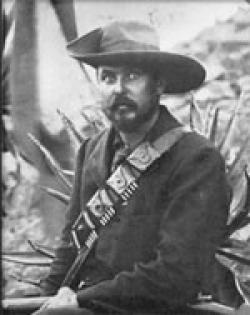
Published date
15 September 1910
On 15 September 1910, General Louis Botha and Hertzog's South African Party (SAP) won the majority number of seats in the House Assembly forming the first government of the Union of South Africa. The Union was formed in 1910 after the South Africa Act was passed in Britain granting dominion to the White minority over Native (African), Asiatic (mostly Indian) and 'Coloured and other mixed races'. This Act brought the colonies and republics - Cape Colony, Natal (now kwaZulu Natal), Transvaal and Orange Free State (now Free State) - together as the Union of South Africa.
On 15 September 1910, South African held its first election after the formation of the Union and General Louis Botha leader of the South African Party (SAP) won 67 out 130 seats in parliament making it the majority. The Unionist Party (UP) led by Leander Jameson won only 37 seats. Crowds of party supporters gathered at Market Square in Johannesburg to hear the outcome of the parliamentary election. Parliament was constituted on 4 November 1910 and Botha became the first Prime Minister of the Union holding office from 1910 to 1919. Botha appointed Jan Smuts as his Minister of Defence.
It was under Botha's government that the Immigrants Regulation Act was passed on June 14 1913. The Act put an end to Indian immigration and restricted their movement within the country. After a protracted period of Passive Resistance led by Mahatma Ghandi, the Indian Relief Act was passed in June 1914.
References
Desai, A. and Vahed, G. (2010) Inside Indian Indenture: A South African Story, Cape Town, p.216|South African History Online, Louis Botha, [online], Available at www.sahistory.org.za [Accessed: 12 September 2013]|South African History Online, South African Party (SAP), [online], Availabe at www.sahistory.org.za [Accessed: 12 September 2013]